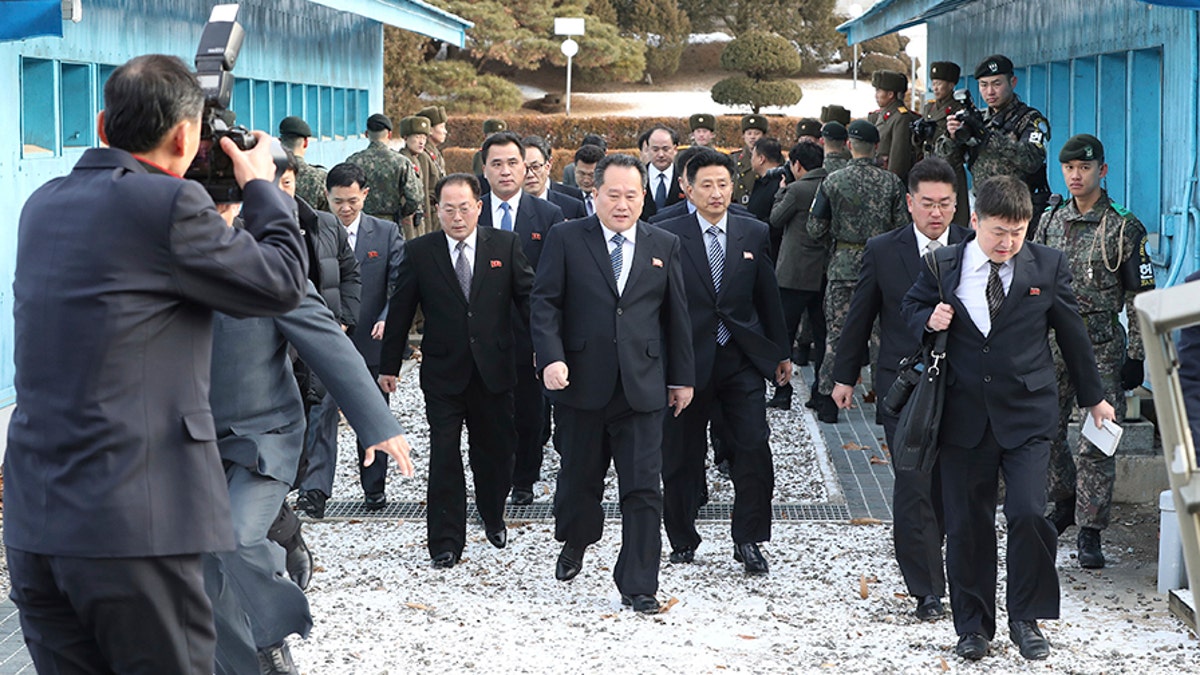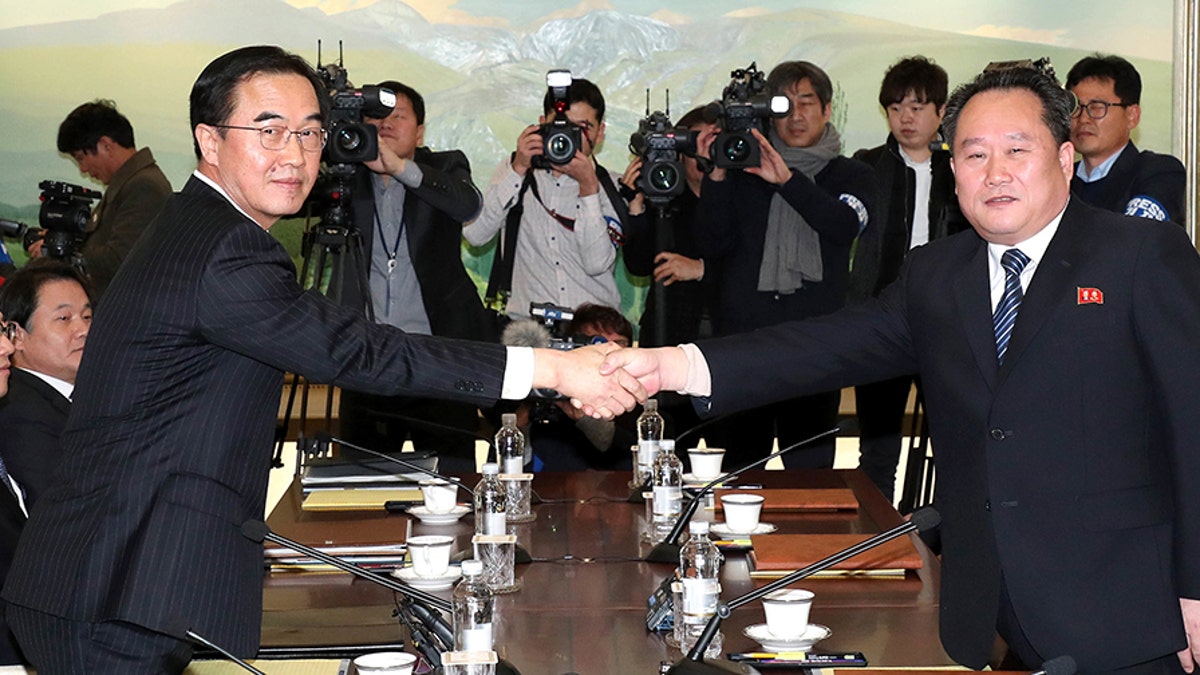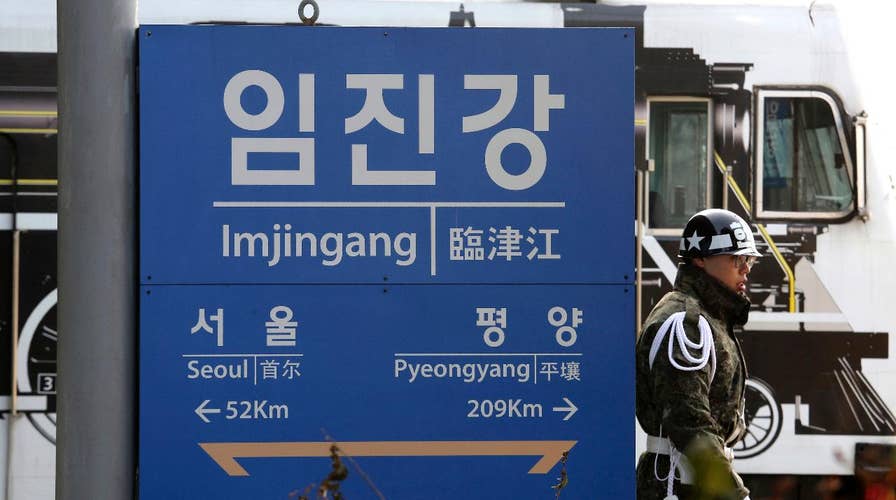What to expect from talks between North and South Korea
North and South Korean officials will meet at border village within the DMZ will hold talks for first time since December 2015; a spokesman for the South Korean government says talks could cover more than just the upcoming Olympics.
Senior officials from North and South Korea began the rivals' first formal talks in about two years Tuesday to discuss how to cooperate in next month's Winter Olympics in the South and how to improve their long-strained ties.
The talks in the border village of Panmunjom were arranged after North Korea's leader Kim Jong Un recently made an abrupt push for improved ties with South Korea and are closely watched by the outside world after a year of elevated tensions over North Korea's expanding nuclear and missile programs.

The head of North Korean delegation Ri Son Gwon, center, arrives at the South side for the meeting with South Korea at the Panmunjom in the Demilitarized Zone in Paju, South Korea, Tuesday, Jan. 9, 2018. (Korea Pool/Yonhap via AP)
"I think we should be engaged in these talks with an earnest, sincere manner to give a New Year's first gift -- precious results (of the talks) to the Korean nation," chief North Korean delegate Ri Son Gwon said at the start of the negotiations, according to media footage from the venue.
Critics of the meeting say Kim may be trying to divide Seoul and Washington to weaken international pressure and sanctions, which were toughened after his country conducted its sixth and most powerful nuclear test and test-launched three intercontinental ballistic missiles.
President Donald Trump on Saturday expressed hope for some progress from the talks and said he was open to talking with Kim himself. But U.N. Ambassador Nikki Haley later said the U.S. administration isn't changing its conditions regarding talks with North Korea, saying Kim would first need to stop weapons testing for a "significant amount of time."
In his New Year's Day address, Kim said there is an urgent need to improve inter-Korean ties and that he is willing to send a delegation to the Feb. 9-25 Winter Games in Pyeongchang, South Korea. He urged Seoul to halt its annual military drills with Washington, which he called a rehearsal for an invasion, and said he has a "nuclear button" to launch missiles at anywhere in the United States.

South Korean Unification Minister Cho Myoung-gyon, left, shakes hands with the head of North Korean delegation Ri Son Gwon before their meeting at the Panmunjom in the Demilitarized Zone in Paju, South Korea, Tuesday, Jan. 9, 2018. (Korea Pool/Yonhap via AP)
Moon, a liberal who favors dialogue as a way to defuse the North Korean nuclear standoff, welcomed Kim's outreach and proposed talks at the border village of Panmunjom. Kim quickly accepted Moon's offer.
South Korean officials said they would focus first on Olympic cooperation before dealing with tougher political and military issues. Moon's government wants North Korea to take part in the Games as a way to improve relations.
The Trump administration agreed last week to delay upcoming springtime military drills with South Korea until after the Games. Defense Secretary Jim Mattis insisted the delay was a practical necessity to accommodate the Olympics, not a political gesture.
Trump and Kim traded bellicose warlike rhetoric and even crude insults last year.









































